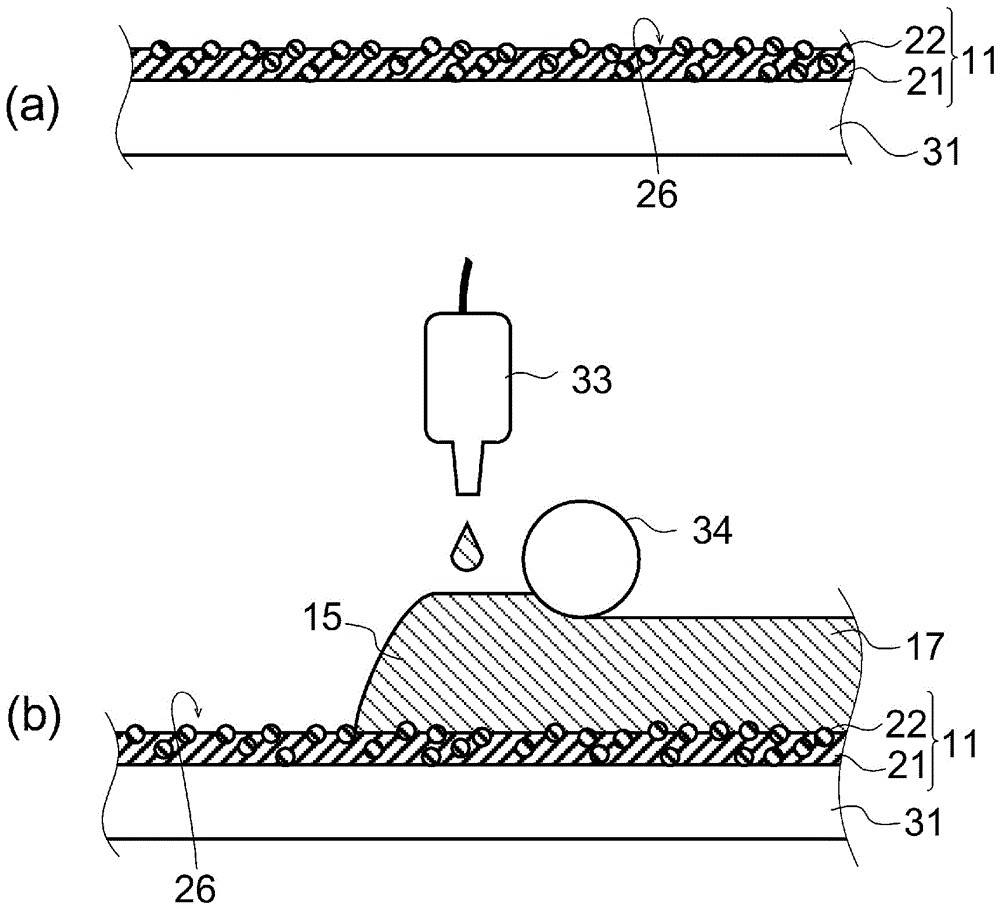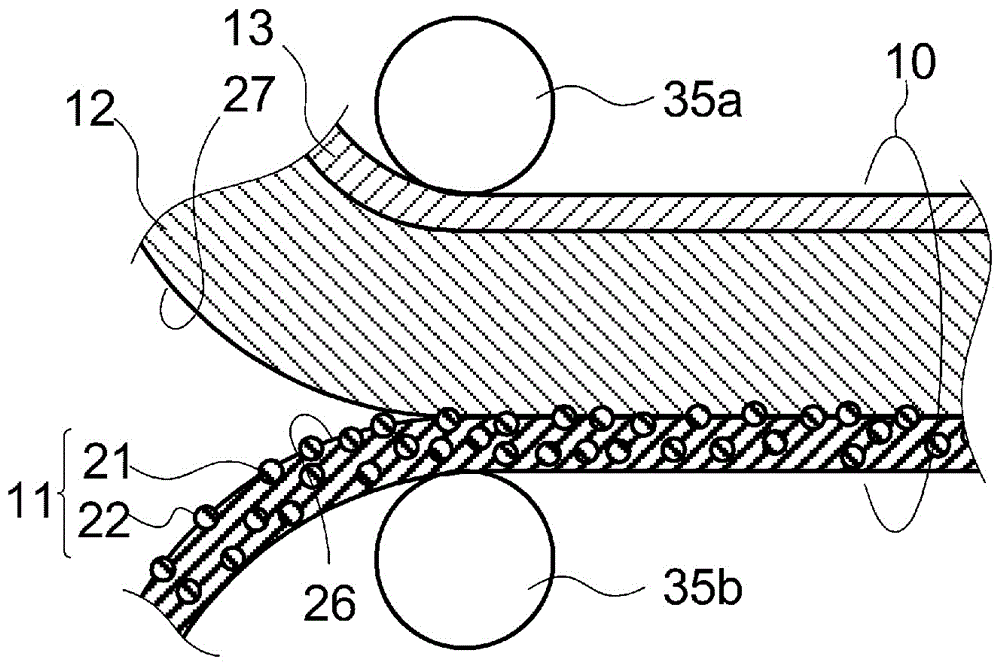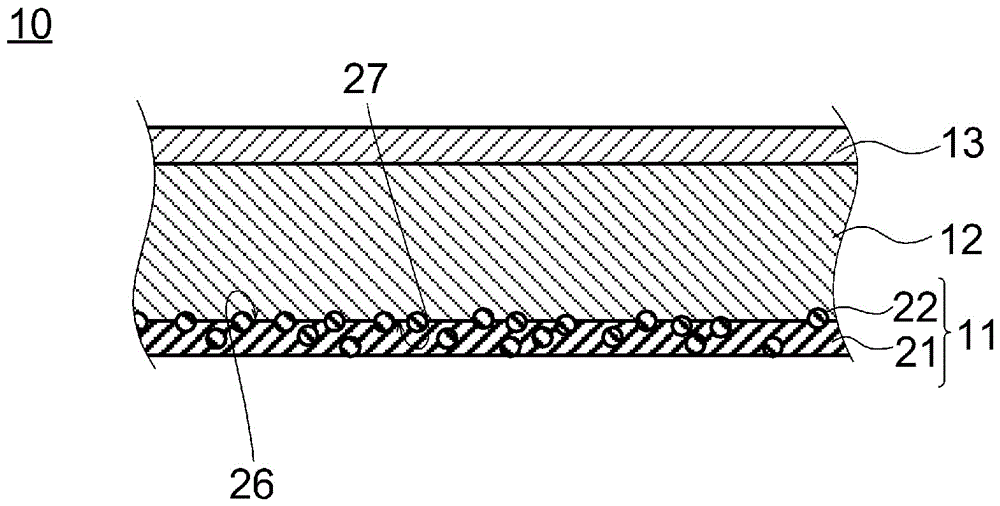Multilayer heat-conductive sheet, and manufacturing method for multilayer heat-conductive sheet
A technology of heat conduction sheet and heat conduction layer, which is applied in semiconductor/solid-state device manufacturing, cooling/ventilation/heating transformation, semiconductor devices, etc., can solve the problems of reduced performance of heat conduction sheet, poor adhesion, interface damage, etc., to improve processability , the effect of improving reworkability
- Summary
- Abstract
- Description
- Claims
- Application Information
AI Technical Summary
Problems solved by technology
Method used
Image
Examples
Embodiment
[0078] The thermoplastic resin and the inorganic filler were dispersed and dissolved in a mixed solvent of toluene:MEK (methyl ethyl ketone, methyl ethylketone) = 1:1 to obtain a non-tacky layer raw material solution with a solid content of 10%.
[0079] The types and names of the thermoplastic resin and inorganic filler, the average particle diameter of the inorganic filler (column "Filler D50"), and the weight ratio of the inorganic filler to the thermoplastic resin are shown in Examples 1 to 6 and Comparative Examples 1 to 4 in Table 1 below. .
[0080] Next, apply the non-adhesive layer raw material solution with a bar coater, and dry it with a drier at 90° C. for 5 minutes to obtain the following: figure 2 (a) Non-adhesive layer 11 shown.
[0081] The thickness of the non-adhesive layer 11 is shown in Table 1 below.
[0082] [Table 1]
[0083] Table 1 Contents of non-adhesive layer
[0084] .
[0085] The preparation ingredients are the heat conduction layer raw m...
PUM
| Property | Measurement | Unit |
|---|---|---|
| Glass transition temperature | aaaaa | aaaaa |
| Particle size | aaaaa | aaaaa |
| Thickness | aaaaa | aaaaa |
Abstract
Description
Claims
Application Information
 Login to View More
Login to View More - R&D
- Intellectual Property
- Life Sciences
- Materials
- Tech Scout
- Unparalleled Data Quality
- Higher Quality Content
- 60% Fewer Hallucinations
Browse by: Latest US Patents, China's latest patents, Technical Efficacy Thesaurus, Application Domain, Technology Topic, Popular Technical Reports.
© 2025 PatSnap. All rights reserved.Legal|Privacy policy|Modern Slavery Act Transparency Statement|Sitemap|About US| Contact US: help@patsnap.com



